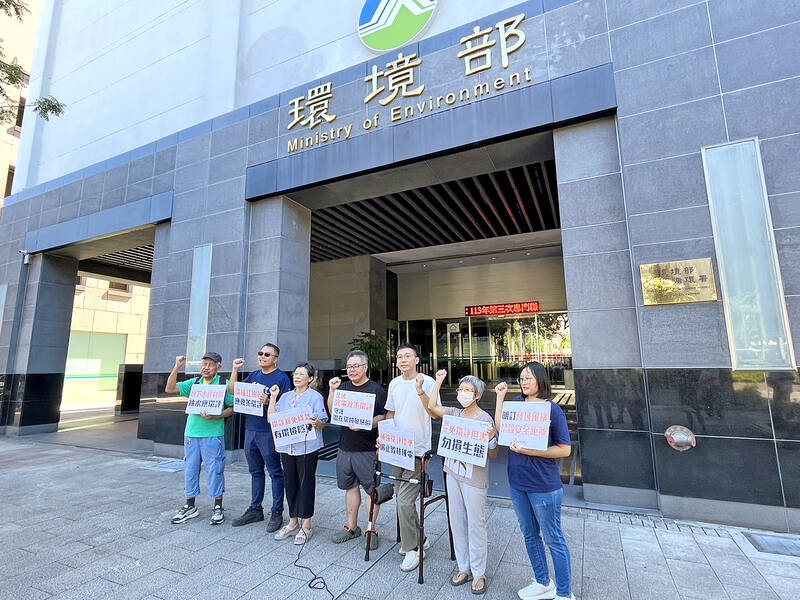Environmental groups call for stricter EIA standards
2024-09-06 17:16
www.taipeitimes.com/News/taiwan/archives/2024/09/06/2003823353
Fri, Sep 06, 2024 page2
Environmental groups call for stricter EIA standards



